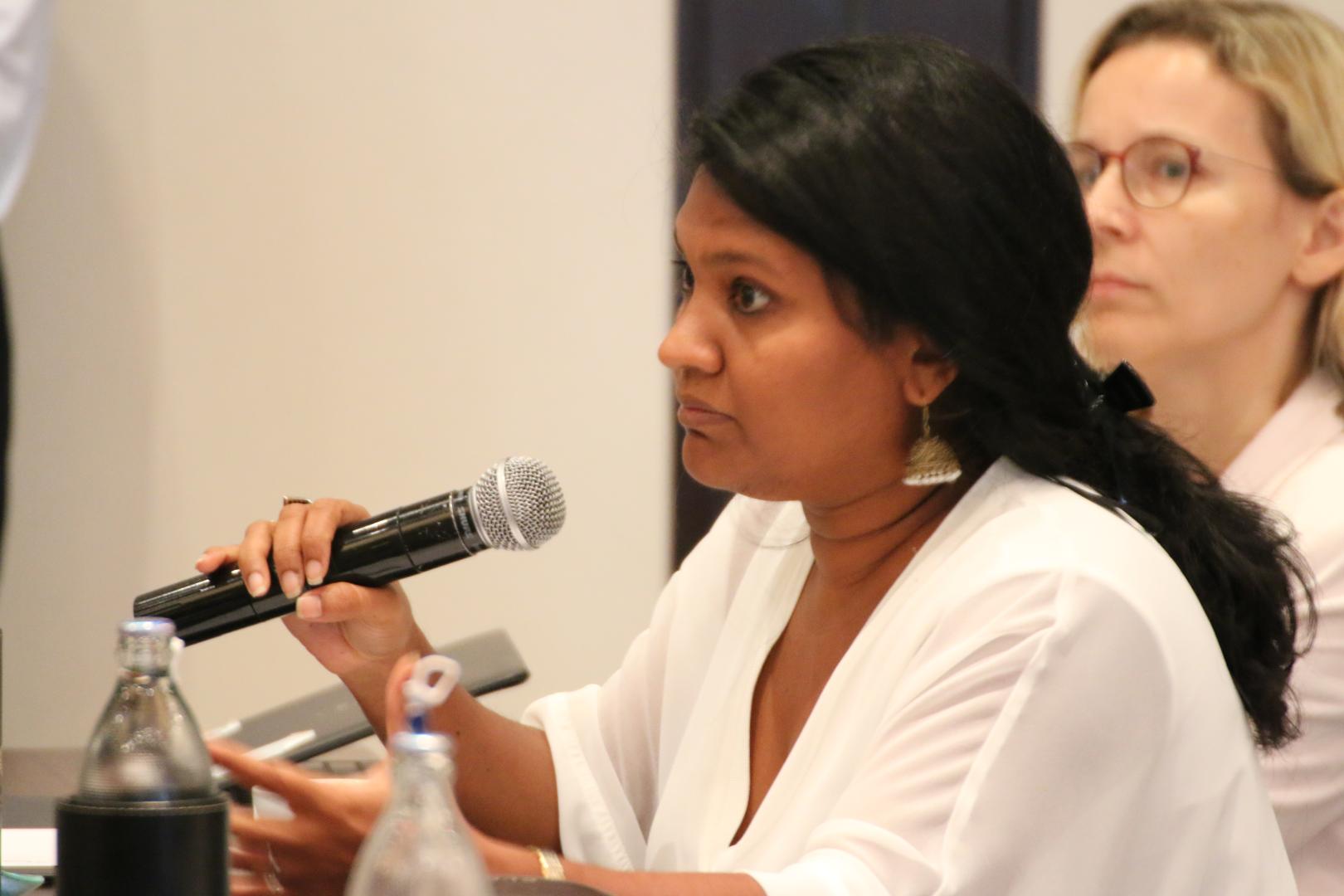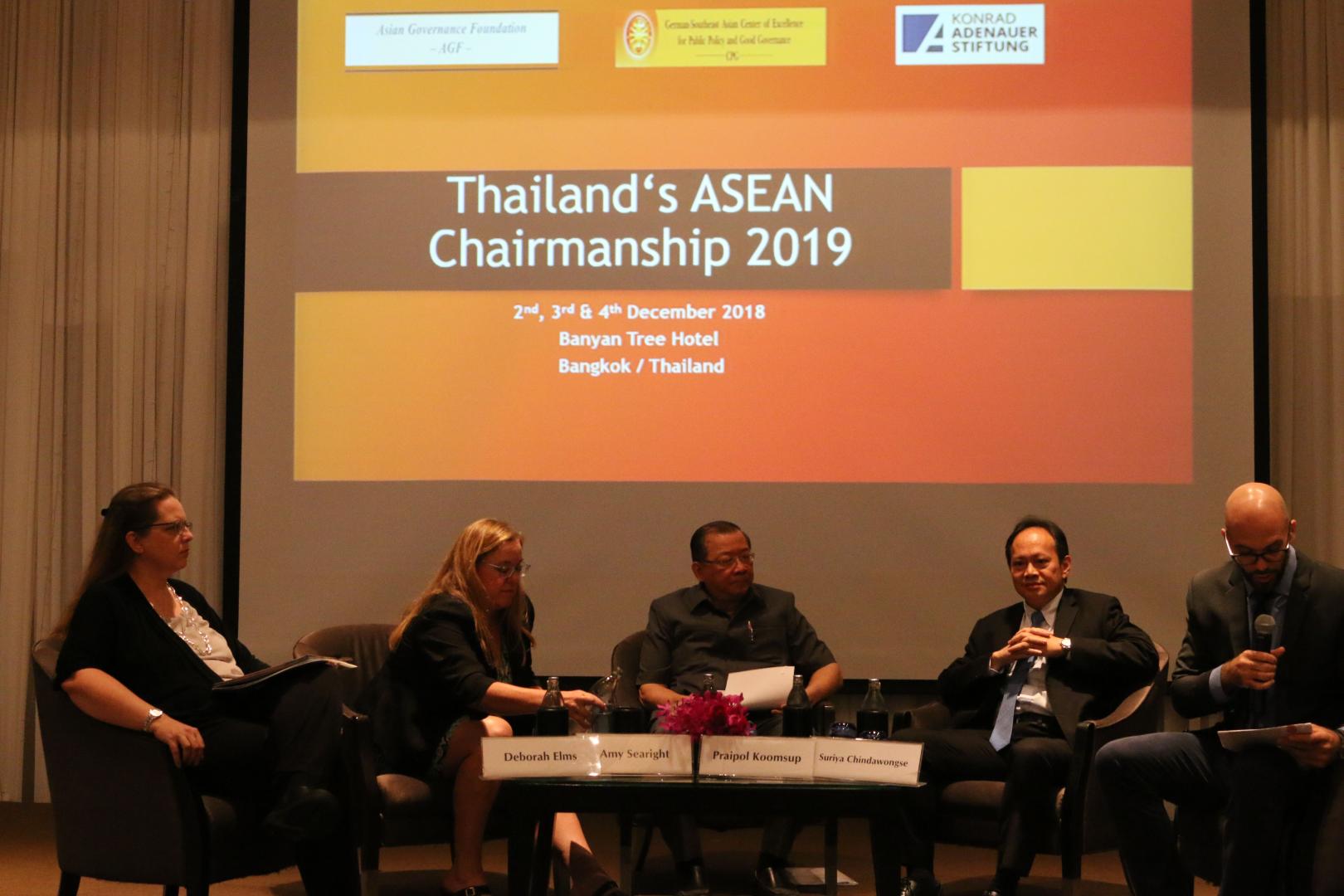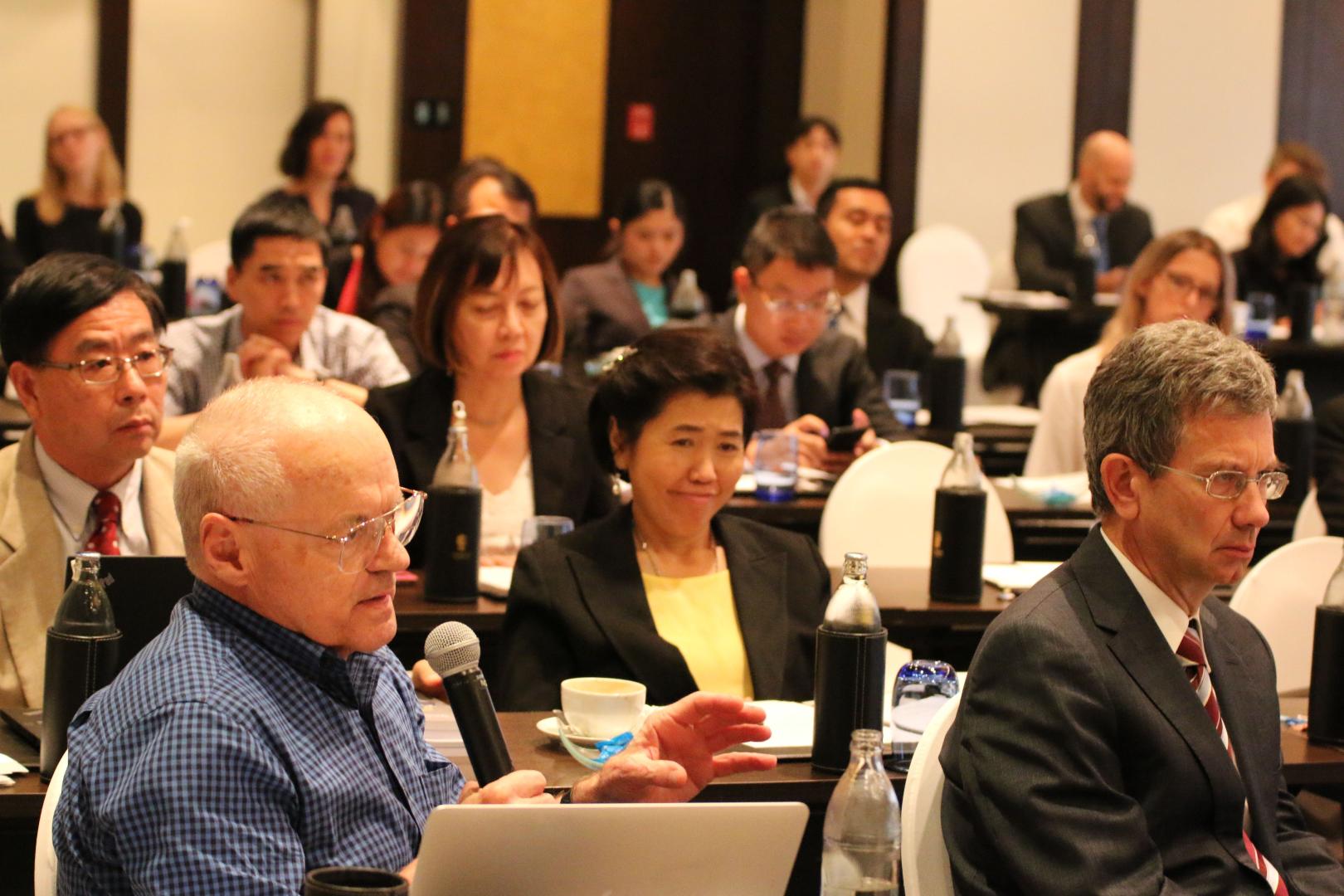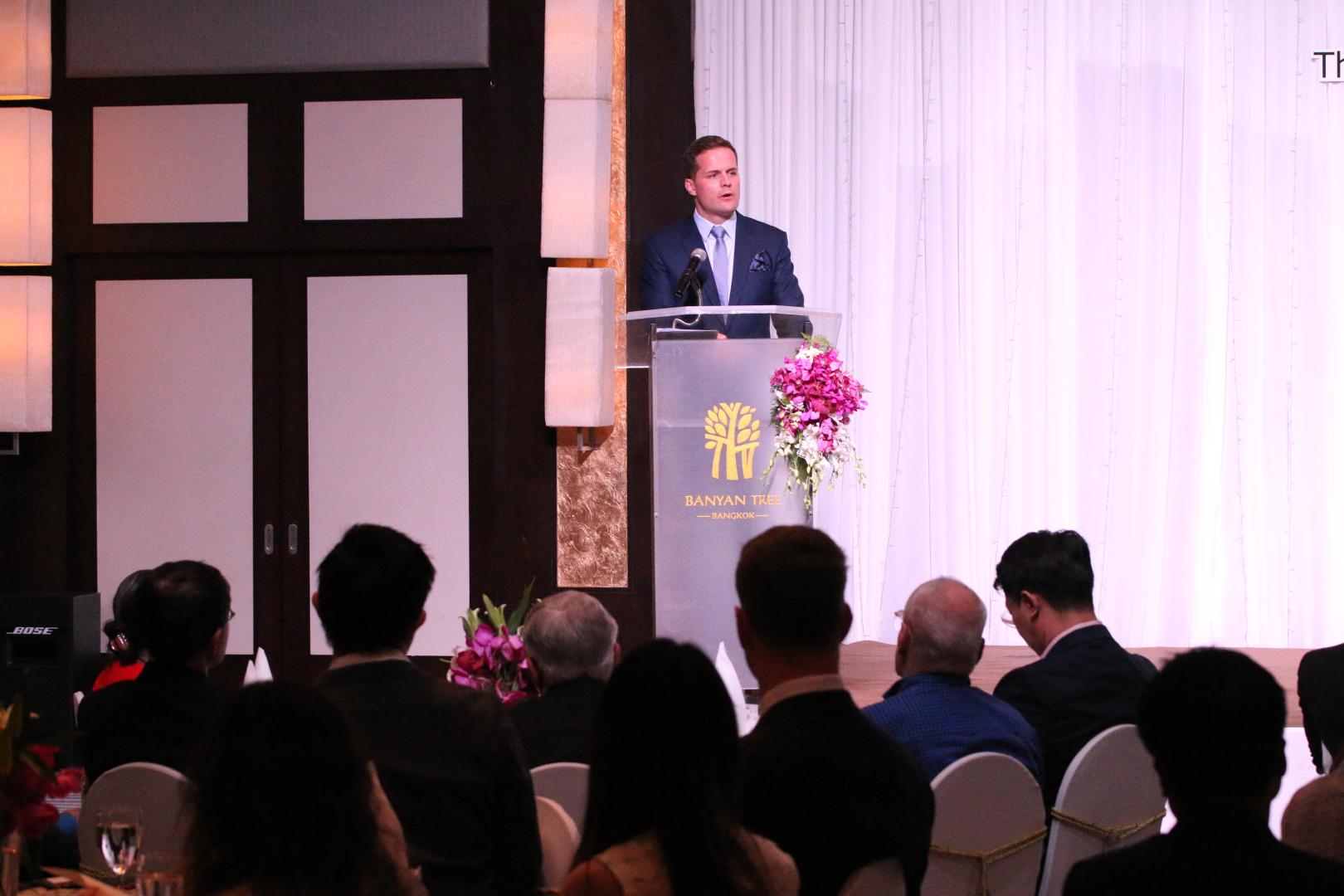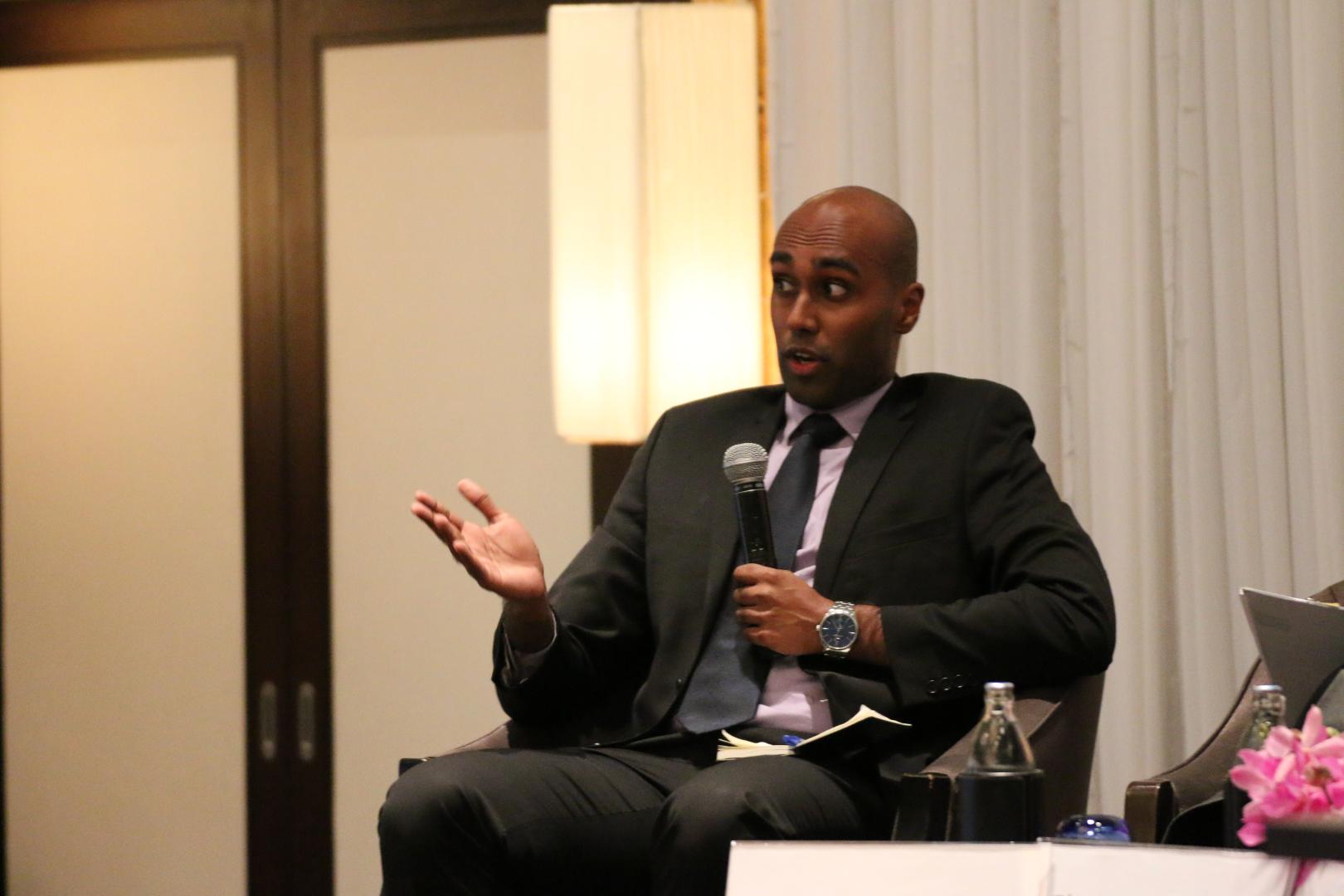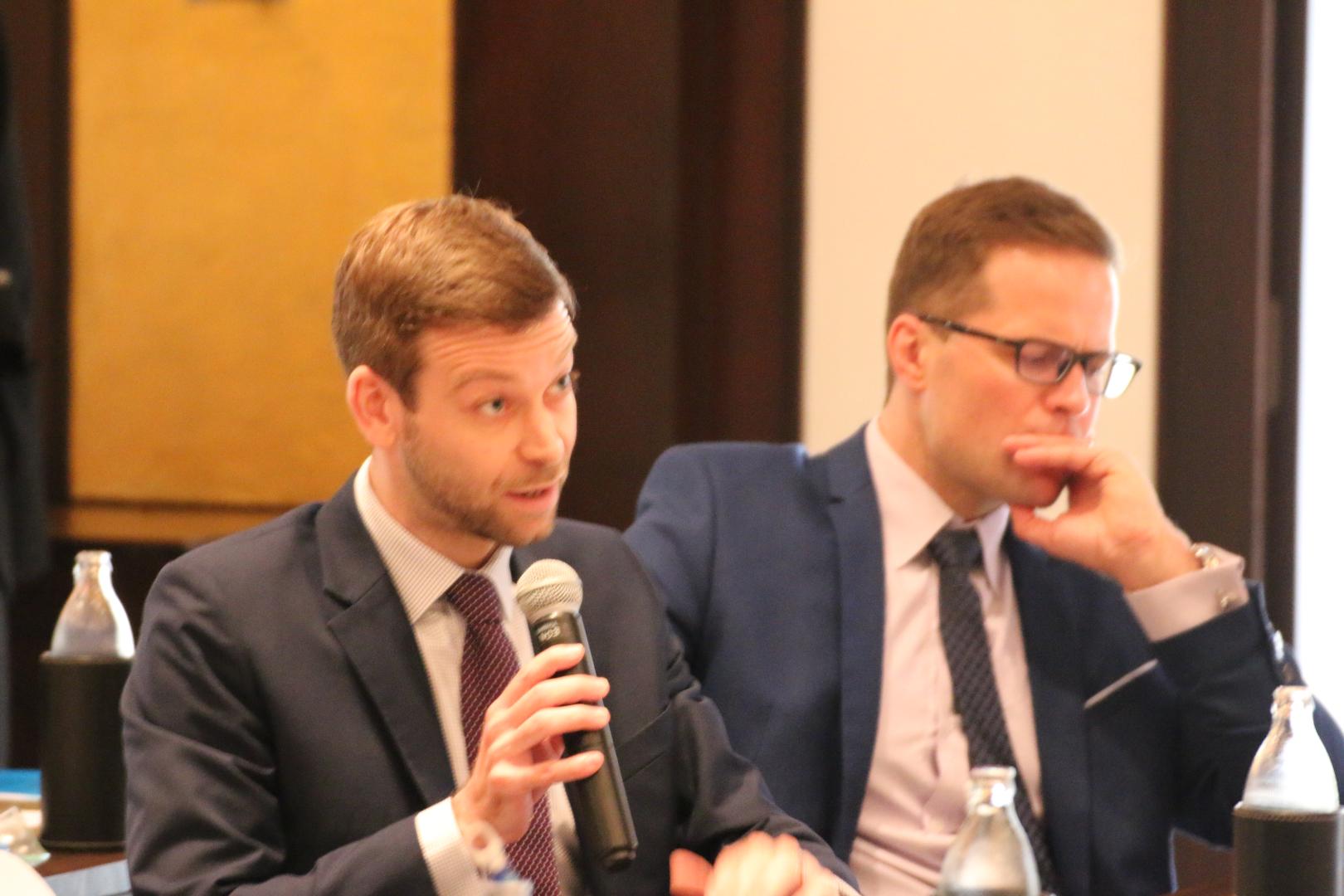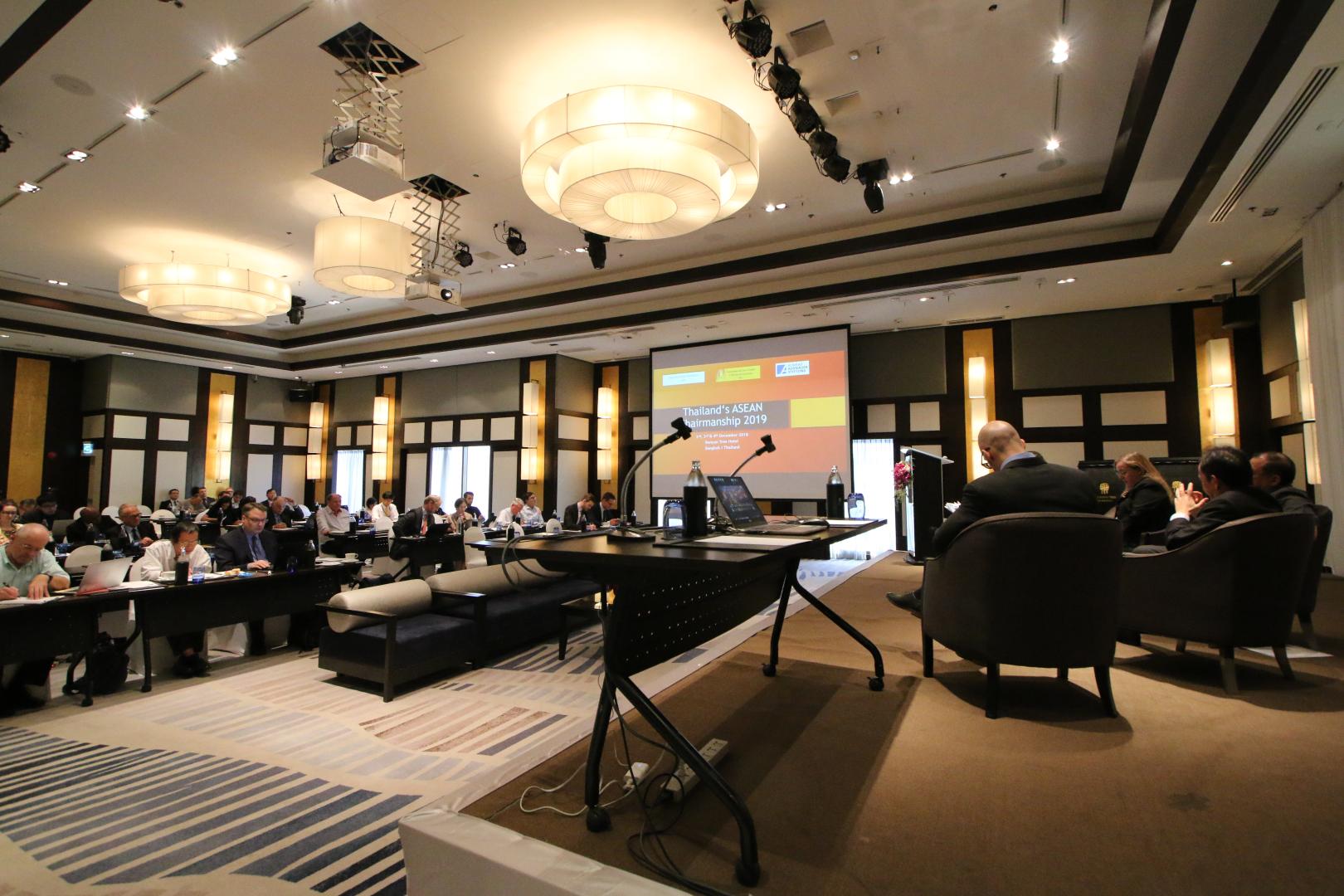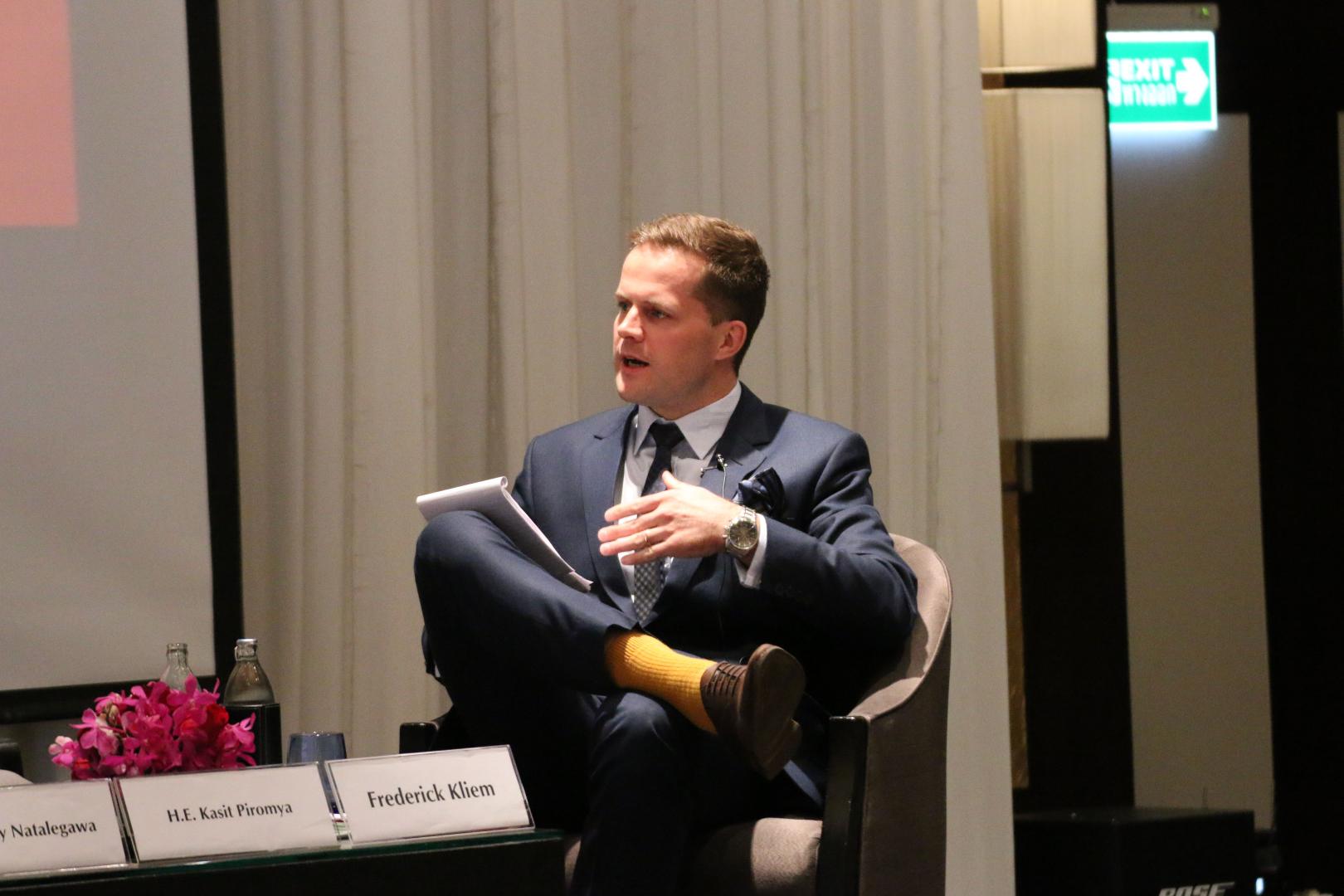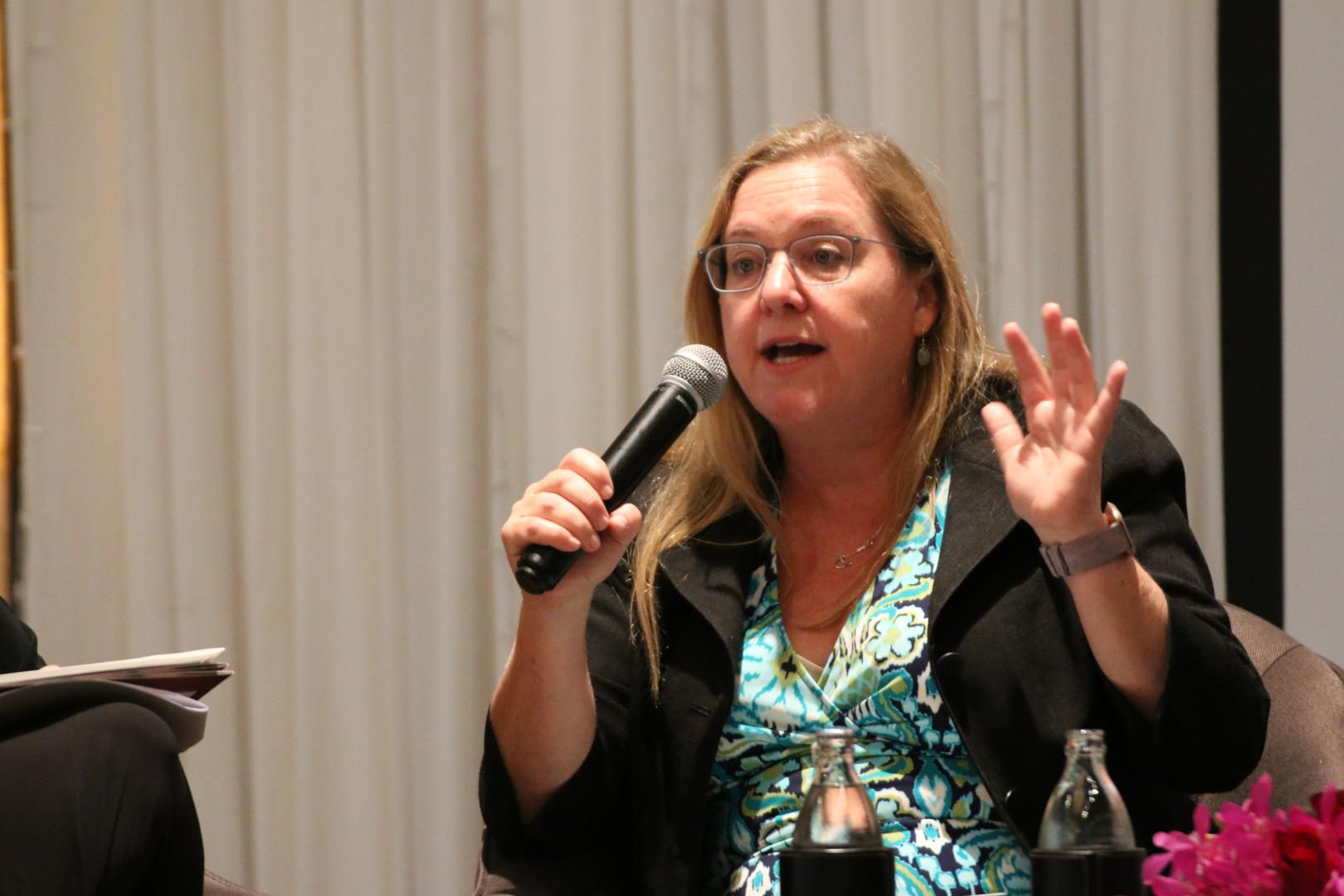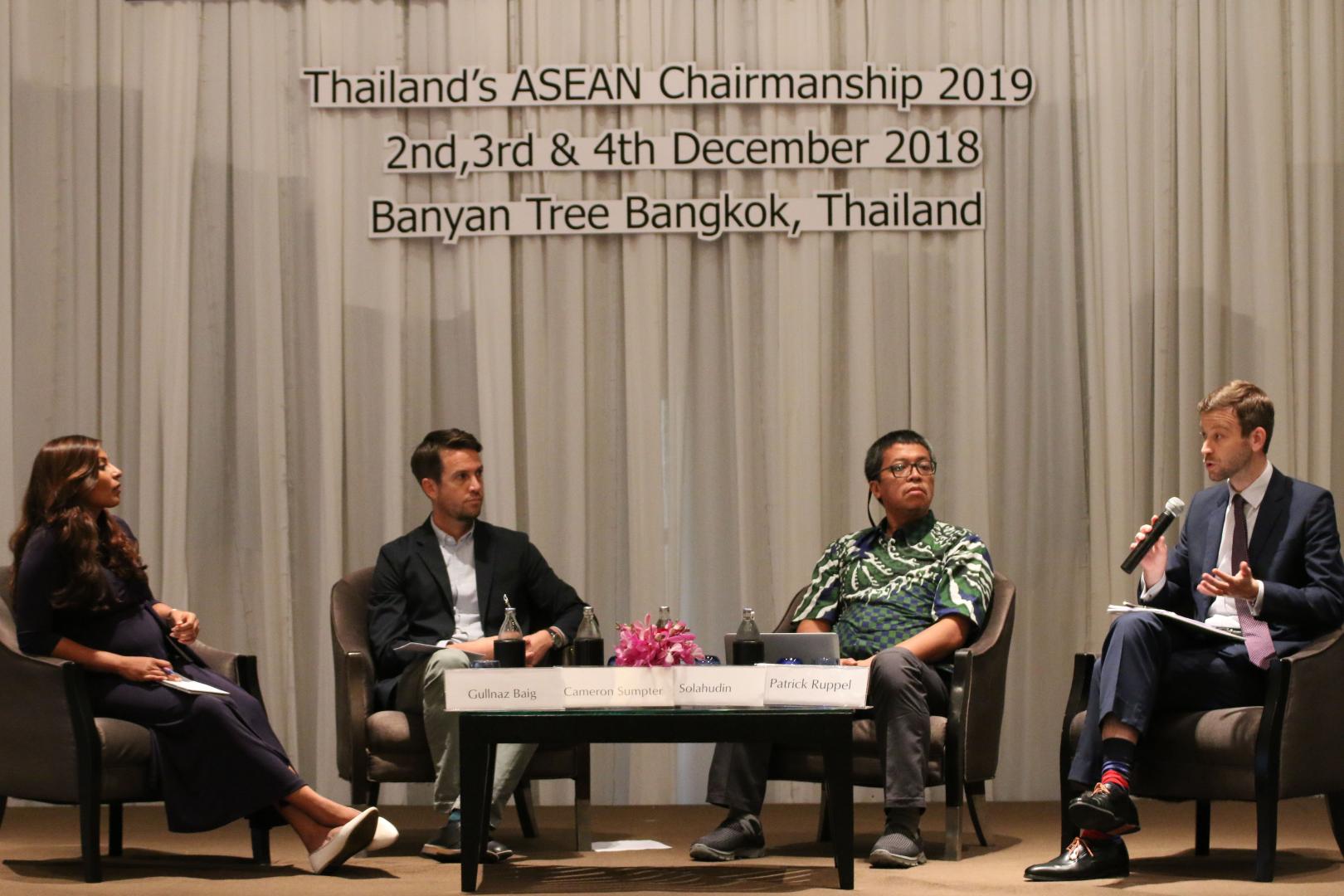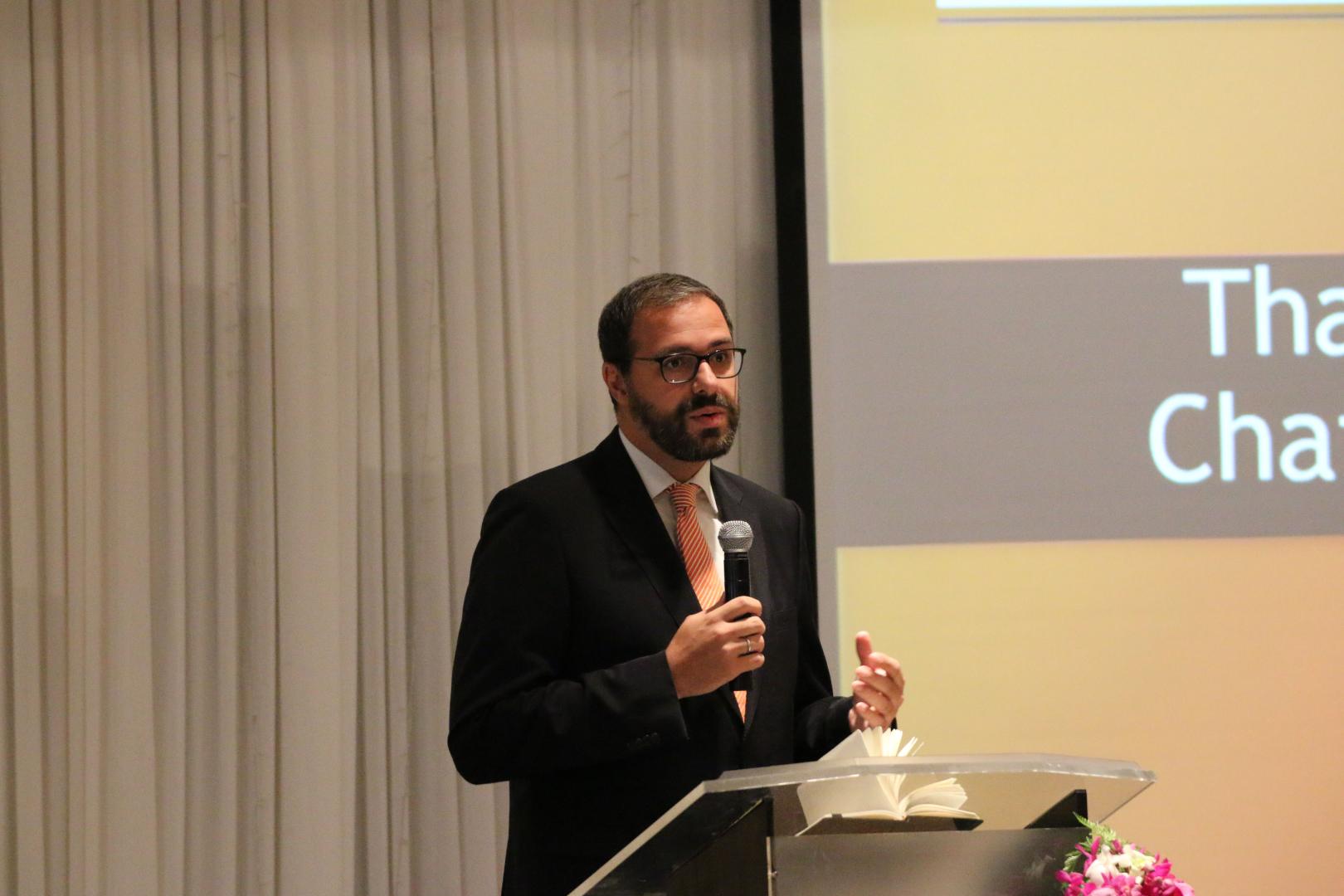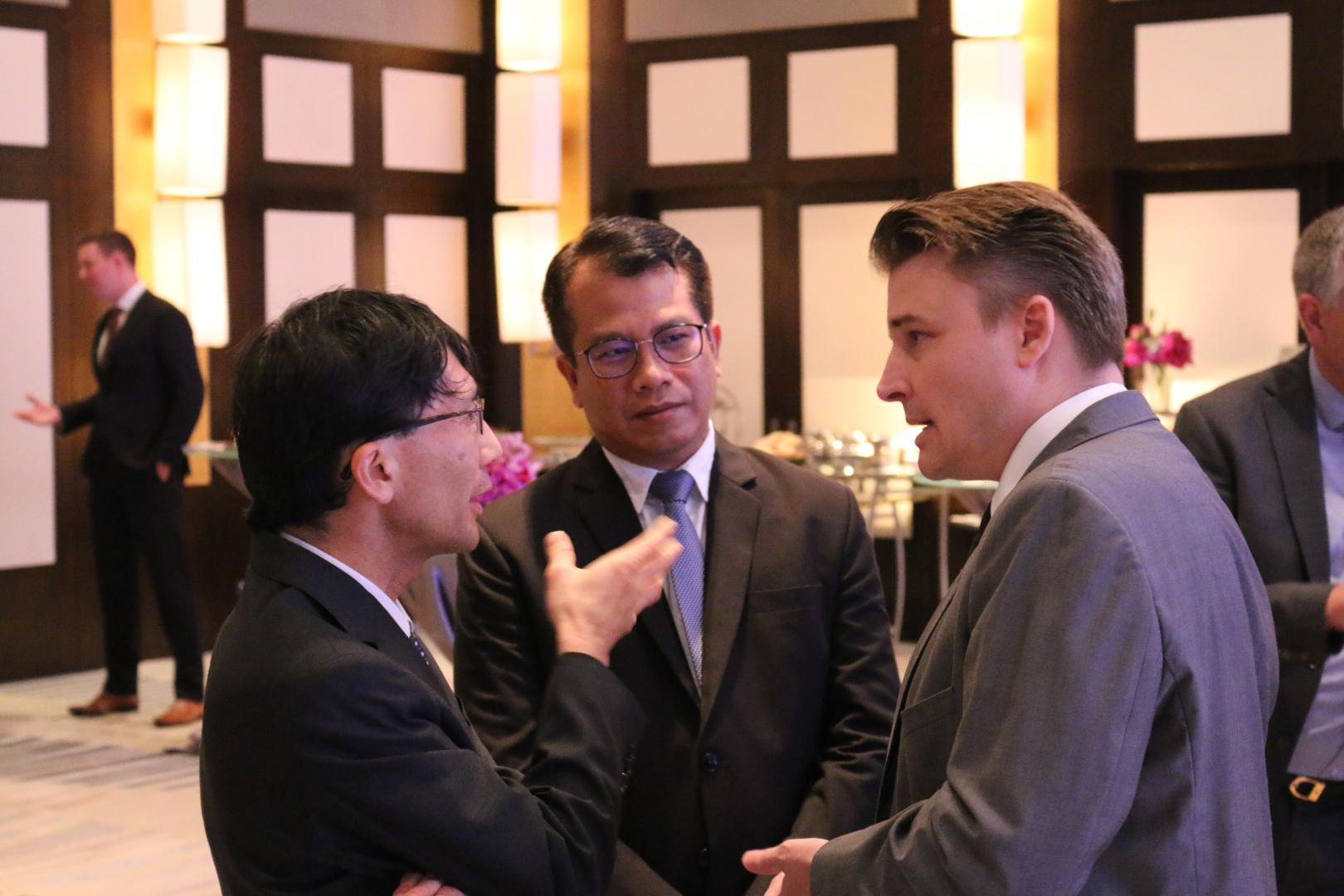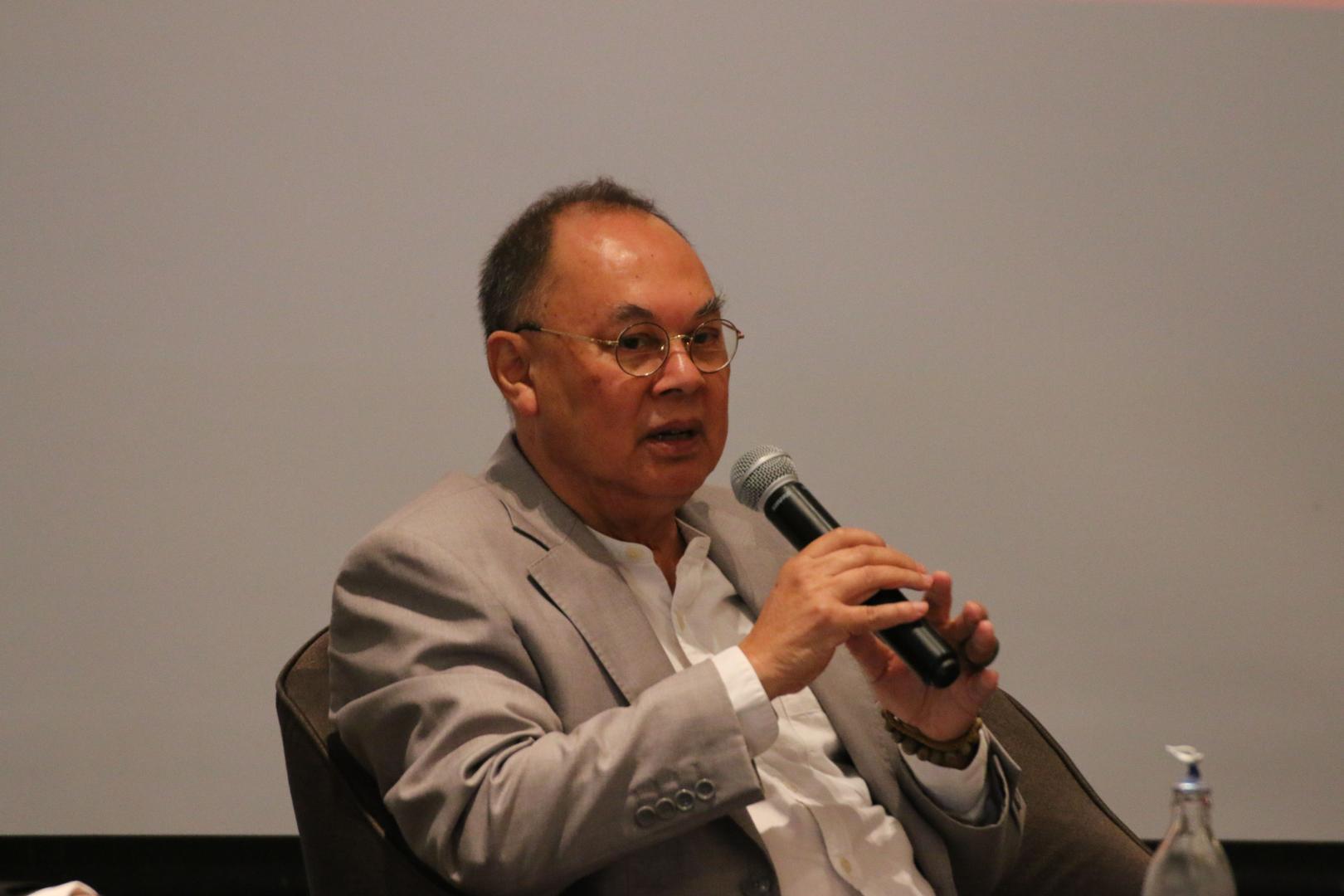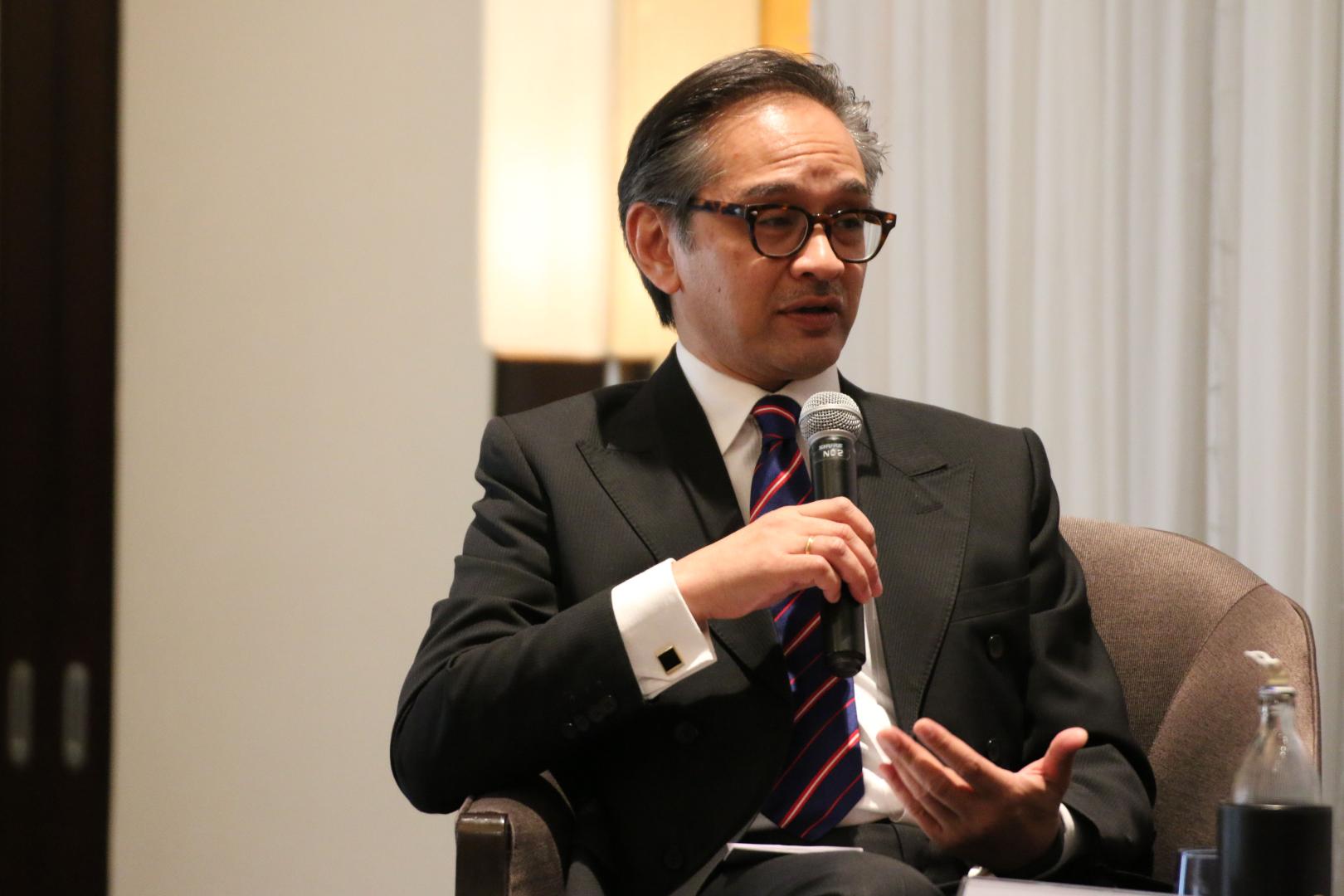Event Reports
The conference with a total of 27 speakers and moderators was organised by the Regional Programme Policy Dialogue Asia of the Konrad Adenauer Stiftung together with the German Southeast Asian Center of Excellence for Public Policy and Good Governance (CPG). The introduction came from the Foreign Ministry of Thailand: A video showing the handover of the ASEAN Chairmanship to Thailand and at the same time providing an overview of the organisation's main goals. The State Secretary further discussed these topics in her speech, in which she presented the main themes of the Thai Chairmanship. Progress, partnership and sustainability - these are the guidelines that will lead ASEAN into a sustainable future. Mr. Henning Glaser of the CPG and Dr. Frederick Kliem both highlighted ASEAN’s challeges and opportunities in their welcome speeches, and both were aware of the threats posed to ASEAN by emerging competing powers, which can only be countered by intensified cooperation and regional integration. Eventually, the participants had the chance to exchange ideas and get to know each other better at an informal reception.
The first day of the meeting began with a presentation by Prof. Don Emmerson, Director of the Southeast Asia Programme at Stanford University. He underlined the importance of a strategic approach in order to secure ASEAN’s advancement. This was followed by a series of panel discussions on ASEAN's interaction with external powers as well as possible challenges for the association. Noteworthy was for instance the panel on terrorism, addressing the increasing threat of terrorism in Southeast Asia and how ASEAN member states deal with the challenges posed by indigenous terrorists and returning fighters. Presentations included Facebook’s Asia-Pacific Head of Counterterrorism Policy, informing the audience about the activities of the online platform in this regard. The potential of government-insustry collaboration in counterterrorism is often disregarded in ASEAN as other problems seem more important or responsibilities are not clarified. Cameron Sumpter of the RSIS in Singapore highlighted ASEAN’s role in coordinating local grassroots de-radicalisation efforts across the ASEAN-ten.
The first round of discussions on the following day focused on the orientation of the political leadership of South East Asian states, with Dr. Tang Siew Mun, Chairman of the ASEAN Studies Centre of the ISEAS-Yusof Ishak Institute, emphasising the importance of regionalism in ASEAN. Economic issues were also debated: professors and researchers discussed economic challenges and potentials of the ASEAN countries in the future. The exchange particularly benefitted from the presentation by the Director General for ASEAN Affairs at the Thai Foreign Ministry, Mr. Suriya Chindawongse, who laid out Bangkok’s plan for the AEC in 2019.
The highlight of the event was a live interview with His Excellency Marty Natalegawa, former Foreign Minister of Indonesia, and His Excellency Kasit Piromya, former Foreign Minister of Thailand. Questioned by Dr. Frederick Kliem of KAS PDA, the two ASEAN elders discussed teir visions for the future of the organisation, highlighting the necessity of reforms, ambitious, but feasible. The discussion that followed mainly focused on possibilities of how to secure ASEAN's geopolitical relevance for the future.



